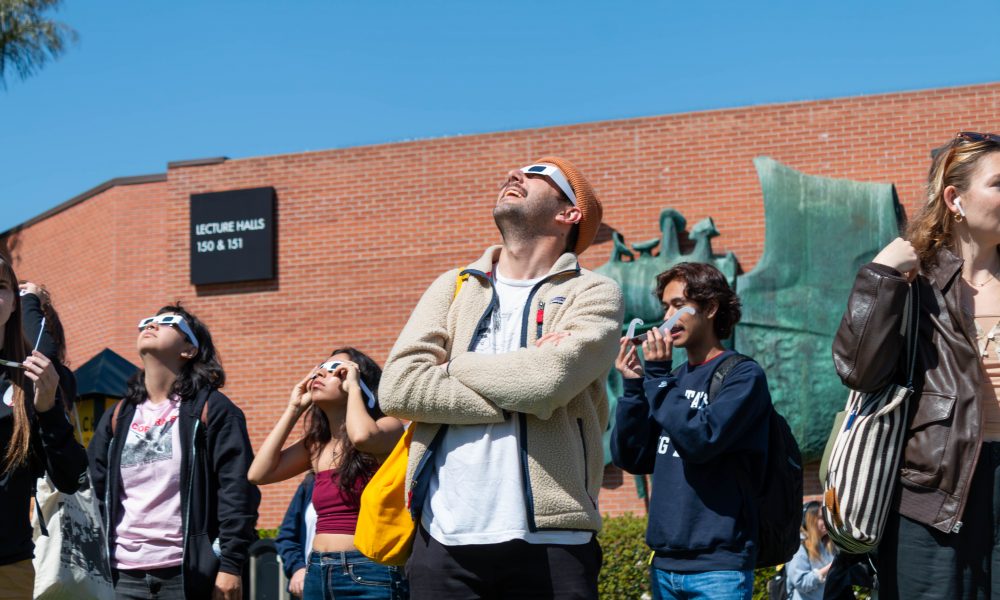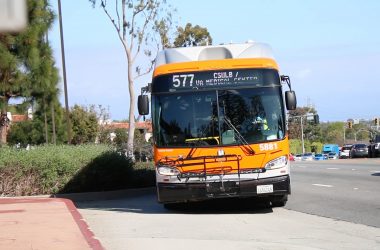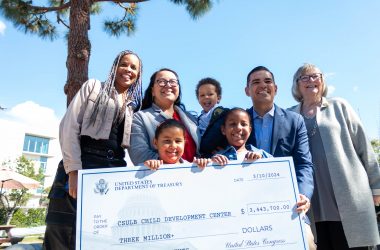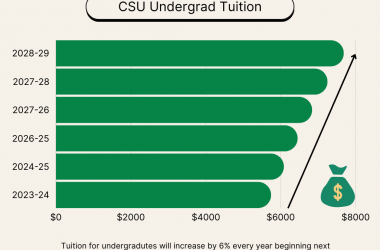The partial eclipse in Los Angeles brought swarms of students to enjoy the event Monday afternoon.
With their protective glasses, telescopes to view the eclipse and cameras in the air, everyone was ready to see the moon cover the sun.
Joel Zinn, an assistant professor in the Physics and Astronomy department, said they ran out of eclipse glasses and the event was beyond his wildest dreams.
Zinn said everyone in the US, Mexico and Canada could view the partial eclipse. He said this is why it was named the “Great North American Eclipse.”
“I see this as a communal event that everyone can participate in the North American continent,” Zinn said.
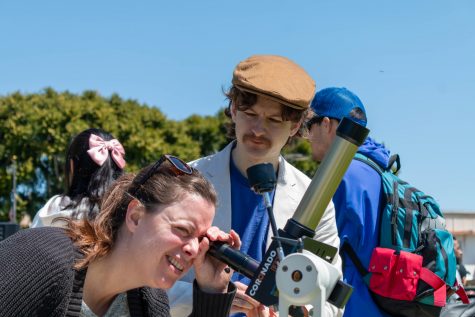
An eclipse is where the moon blocks out some of the sun and it is a rare occasion, Curtis Bennett, dean of natural sciences and mathematics, said.
Groups of students lined up at telescopes to see the eclipse and multiple students talked and engaged with one another.
“The energy here has been great, people have been lining up to see the sun on the telescope […] and we have projection viewers, people have been setting up in the lawn and hanging out,” Zinn said.
The eclipse began in Los Angeles at 11:12 a.m. and the partial eclipse ended at 12:22 p.m., according to the Griffith Observatory. Many spectators enjoyed the event on campus and took videos on their phones to post on social media.
“I’m very passionate about the eclipse and anything having to do with astrology,” Johanna Haro, a second-year business major, said. “It makes me feel like I’m not the only one that is interested in this.”
Biological Sciences professor Editte Gharakhanian said she is grateful to the College of Natural Sciences for putting the event together and loved the turnout of the event.
For more information, follow CSULB Physics on social media or the College of Natural Sciences and Mathematics website for future events and more information.
This article was edited on April 10, 2024 for accuracy.

